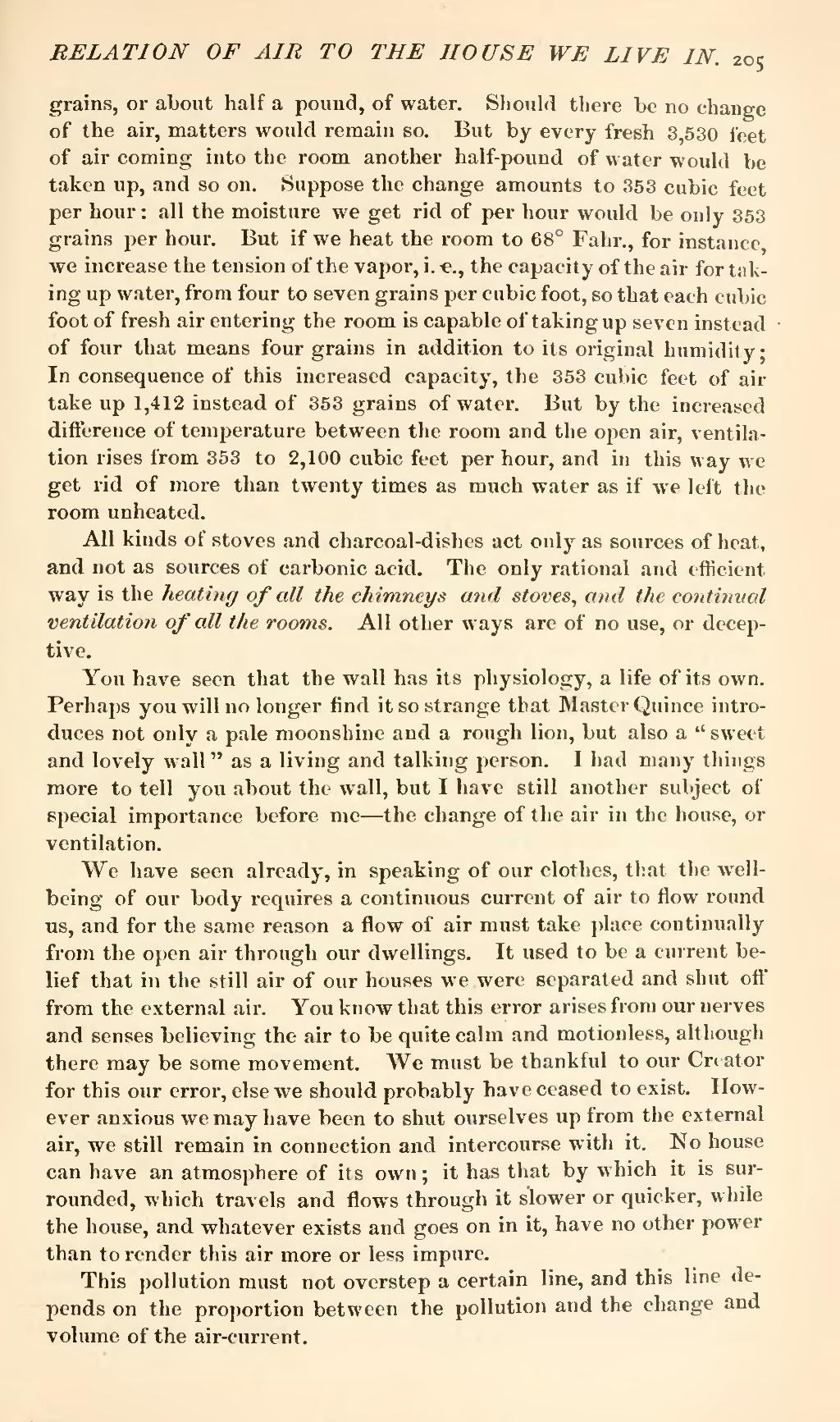grains, or about half a pound, of water. Should there be no change of the air, matters would remain so. But by every fresh 3,530 feet of air coming into the room another half-pound of water would be taken up, and so on. Suppose the change amounts to 353 cubic feet per hour: all the moisture we get rid of per hour would be only 353 grains per hour. But if we heat the room to 68° Fahr., for instance we increase the tension of the vapor, i. e., the capacity of the air for taking up water, from four to seven grains per cubic foot, so that each cubic foot of fresh air entering the room is capable of taking up seven instead of four that means four grains in addition to its original humidity In consequence of this increased capacity, the 353 cubic feet of air take up 1,412 instead of 353 grains of water. But by the increased difference of temperature between the room and the open air, ventilation rises from 353 to 2,100 cubic feet per hour, and in this way we get rid of more than twenty times as much water as if we left the room unheated.
All kinds of stoves and charcoal-dishes act only as sources of heat, and not as sources of carbonic acid. The only rational and efficient way is the heating of all the chimneys and stoves, and the continual ventilation of all the rooms. All other ways are of no use, or deceptive.
You have seen that the wall has its physiology, a life of its own. Perhaps you will no longer find it so strange that Master Quince introduces not only a pale moonshine and a rough lion, but also a "sweet and lovely wall" as a living and talking person. I had many things more to tell you about the wall, but I have still another subject of special importance before me—the change of the air in the house, or ventilation.
We have seen already, in speaking of our clothes, that the well being of our body requires a continuous current of air to flow round us, and for the same reason a flow of air must take place continually from the open air through our dwellings. It used to be a current belief that in the still air of our houses we were separated and shut off from the external air. You know that this error arises from our nerves and senses believing the air to be quite calm and motionless, although there may be some movement. We must be thankful to our Creator for this our error, else we should probably have ceased to exist. However anxious we may have been to shut ourselves up from the external air, we still remain in connection and intercourse with it. No house can have an atmosphere of its own; it has that by which it is surrounded, which travels and flows through it slower or quicker, while the house, and whatever exists and goes on in it, have no other power than to render this air more or less impure.
This pollution must not overstep a certain line, and this line depends on the proportion between the pollution and the change and volume of the air-current.

